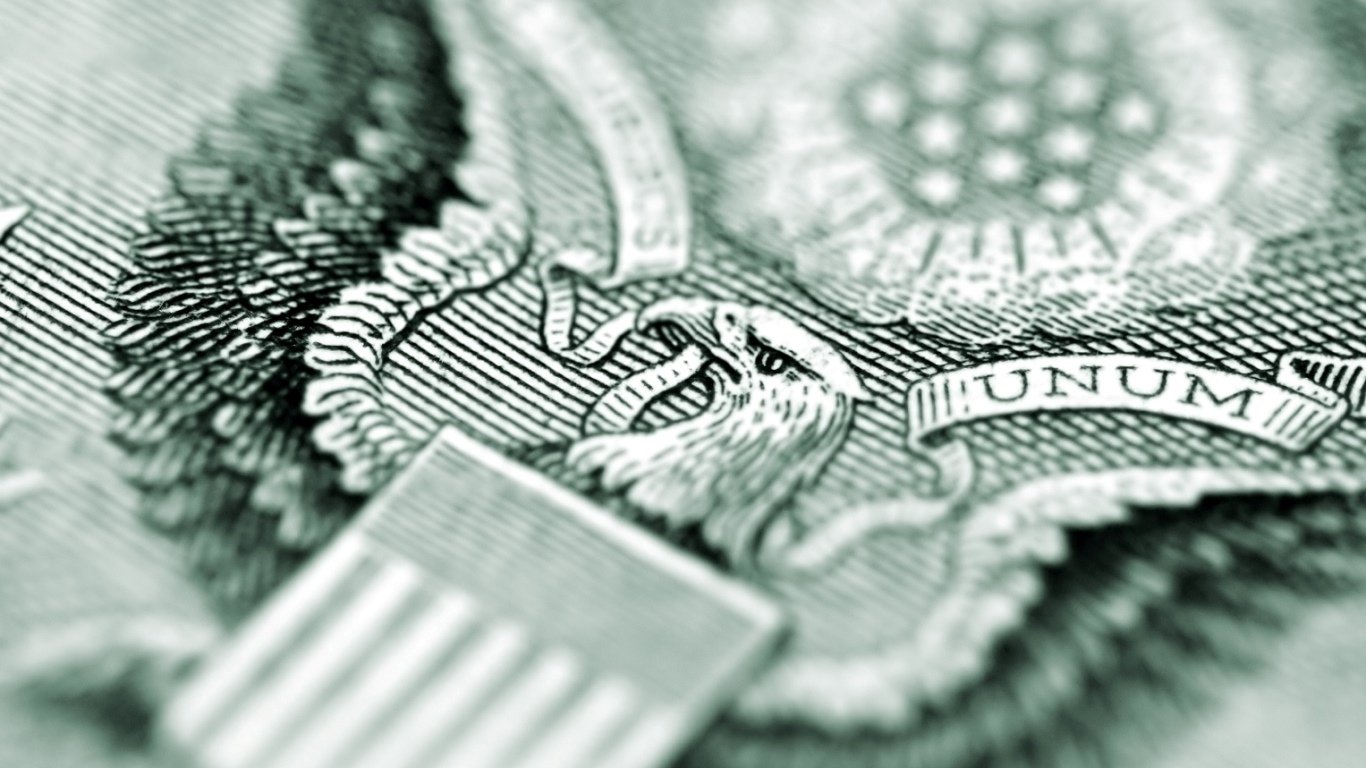7 Large Companies That Easily Could More Than Double Their Dividends
September 18, 2018 by Jon C. OggIt is no secret that investors love their dividends. After all, those dividends can account for up to half of an investor’s total return over time. And when it comes to dividends for long-term holders, those investors really love to see when their company raises its dividends year after year.
24/7 Wall St. has tracked many groups of dividend announcements over the years. In fact, we recently published a list of 25 companies with 40 years (or more!) of dividend hikes. And then there are some companies that look like Ebenezer Scrooge is setting their dividend policies.
Many companies are fairly new to the game of having shareholders who “clip coupons” via dividends, but the trend has grown. Tax reform also has made it almost painless to unlock that foreign-held cash that large companies were bashed about for more than a decade. Some stocks have done incredibly well with appreciation of their share price over the years while still paying dividends that are paltry.
Many large-cap stocks could quite easily come with much higher dividends than they do currently. The benefits of tax reform have been made permanent, and it’s easier than ever for most solid companies to evaluate their longer-term after-tax earnings and cash flow expectations that can be used to pay dividends ahead.
For a company to keep raising its dividend, it’s important to understand what is a “fair market value” for a dividend. The median Dow Jones industrial average dividend yield from the index’s 30 components was last seen at 2.37%. The S&P 500 Index has 500 companies, 408 of which are dividend payers. Even if you only look at the S&P 500 stocks that do pay dividends, the S&P 500’s median dividend yield is just about 2.0%.
It is also important to focus on actual earnings per share (EPS), and not just the “non-GAAP” earnings that are used by so many analysts on Wall Street. Companies must have actual after-tax earnings to safely pay dividends, and many companies want to avoid the complicated explanations whether a dividend may be from cash flows or may be classified as a return of capital and not actual dividends based on net EPS.
Some companies simply prefer to keep their cash stockpiles growing. Over time, that offers a safety net against rainy days if the next recession becomes more of a reality. Some companies may prefer to keep cash to fund acquisitions and to reinvest into their businesses. At the end of the day, there are many companies out there which have very low dividend yields and low payout ratios. Many of those dividend misers even have earnings growth for years ahead and have lots of room to boost their dividends.
Here are seven companies that could easily double their dividends in the years ahead.
FedEx
FedEx Corp. (NYSE: FDX) has had some reasons why its dividend payout was lower in the past, but that could be changing in the years ahead. FedEx’s 2018 annual report does show that the company increased its quarterly payout by 30% for fiscal year 2019. That’s a great start, and its 2018 annual report showed that $535 million was paid out in its fiscal 2019 in the form of dividends. The annual report also said that its board can review the payout ahead.
Even after a hike of 30% , the $0.65 quarterly payout per share yields barely 1%. And its $2.60 per share payout compares with last year’s $15.31 per-share earnings. FedEx is expected to earn $17.33 per share in 2019 and $20.02 per share in 2020, so its payout is a mere 15% of this year’s expected earnings. Rival UPS pays out closer to half of its earnings and has a 3% dividend yield.
Intuit
Best known for its TurboTax and QuickBooks, Intuit Inc. (NASDAQ: INTU) has made efforts in recent years to diversify its strategy and offerings. The company recently had close to $2 billion in cash and liquid assets with limited debt, and it manages to grow revenues and EPS each year. Unfortunately, its current $1.88 (used to be $1.56) per share annualized dividend payout generates a yield of only 0.83%, based on a $226 share price. Intuit’s payout ratio is also not even quite at 30% of the current year earnings expectations, and it’s even lower compared with future years’ earnings estimates.
One issue that may hinder Intuit’s dividend growth from getting too excessive is that the $58.5 billion market cap implies that each 1% in dividend yield would equate a $580 million liability. Either way, this is very low for a stable earnings grower in software with a very established business model.
 24/7 Wall St.
24/7 Wall St.